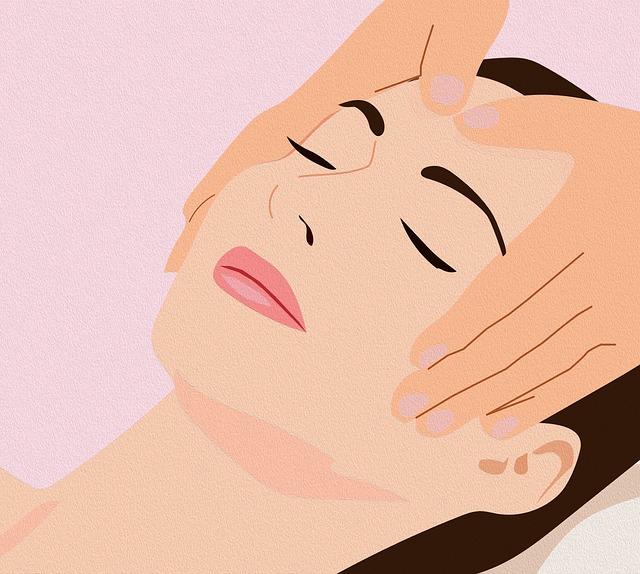In the vast realm of human sexuality, the exploration and understanding of our desires can often lead us into uncharted territories. Among them, some may find themselves confronted with the puzzling concept of sexually deranged meaning. Our sexual desires are complex and unique to each individual, but there are instances where certain desires may stray from what is considered mainstream or socially acceptable. In this article, we delve into the world of deranged desires, examining their origins, potential psychological underpinnings, and shedding light on how society’s perception of these desires can influence our understanding of human sexuality as a whole.
1. Understanding the Dark Side: Exploring the Nature of Sexually Deranged Desires
When delving into the realm of human sexuality, it’s essential to acknowledge and understand the existence of sexually deranged desires. These inclinations, which deviate from societal norms, provoke both curiosity and concern. Through an exploration of their nature, we can gain insight into the complexities of human behavior and foster a more comprehensive understanding of the human psyche.
Sexually deranged desires encompass a broad range of unconventional urges that individuals may experience. It’s crucial to recognize that these desires are not typical or shared by the majority, reflecting the vast diversity of human experiences and preferences. Let’s uncover some key points to consider when studying this intriguing subject:
- The spectrum of sexually deranged desires: This realm covers a wide array of fantasies, fetishes, and inclinations that are often considered taboo or deviant by society. From BDSM (bondage, discipline, dominance, submission) to role-playing, these desires provide a fascinating insight into the human capacity for exploration and variation.
- Roots and influences: Understanding the origins of sexually deranged desires can be complex, influenced by a variety of factors such as personal experiences, societal conditioning, and even biological predispositions. By acknowledging these influences, we can better comprehend the motives behind these desires and approach them with empathy and respect.

2. Unveiling the Taboo: Recognizing the Line Between Sexual Fantasies and Deranged Desires
In the realm of human sexuality, there exists a delicate boundary that separates sexual fantasies from deranged desires. Understanding this boundary is crucial for fostering healthy relationships and promoting consent.
Sexual fantasies, often a product of our imagination and desires, are perfectly normal and serve as a creative outlet for exploring our deepest wants and needs. These fantasies can span a wide array of scenarios, involving role-playing, power dynamics, or even forbidden acts. However, it is important to remember that engaging in sexual fantasies should always be consensual and respectful, with open communication between all parties involved.
- Recognize that sexual fantasies are a natural part of human sexuality.
- Understand the importance of consent when exploring sexual fantasies with a partner.
- Communicate openly with your partner about boundaries, desires, and comfort levels.
- Avoid judgment towards yourself or your partner for having certain sexual fantasies.
On the other side of the spectrum lies deranged desires, ones that can be harmful, non-consensual, or even criminal. It is vital to differentiate these deranged desires from healthy sexual fantasies. Deranged desires may involve activities that violate the boundaries, autonomy, or well-being of others. Recognizing the line between fantasies and deranged desires is crucial to maintaining ethical and respectful sexual behavior.
- Educate yourself about healthy sexual boundaries and behaviors.
- Seek professional help if you find yourself having persistent deranged desires that cause distress or harm to others.
- Understanding the difference between erotic role-playing and behaviors that cross ethical and legal boundaries is essential.
- Remember that consent is the key factor when distinguishing between fantasies and deranged desires.

3. Untangling the Psychology: Delving into the Roots of Sexual Derangement
Exploring the complex realm of human psychology reveals fascinating insights into the underlying factors contributing to sexual derangement. As we delve deeper into this topic, it becomes evident that various elements shape and influence our sexual behavior, desires, and experiences. By understanding these intricate roots, we can better comprehend the complexities of sexual derangement and work towards fostering a healthier and more empathetic society.
1. Influence of Early Experiences:
Our early experiences play a significant role in shaping our sexual identity and behaviors. These include familial and societal norms, childhood trauma, or exposure to explicit content. Such experiences can leave deep imprints on an individual’s psyche, potentially leading to sexual derangement later in life. Understanding these influences helps us empathize with those facing such challenges and encourages a non-judgmental approach towards addressing sexual derangement.
2. Cultural and Societal Factors:
The socio-cultural environment plays a crucial role in shaping our attitudes towards sex, intimacy, and relationships. Societal taboos, gender roles, and cultural practices can greatly influence our perceptions and behaviors. These factors can contribute to the development of sexual derangement, as they often create unrealistic expectations or suppress healthy expressions of sexuality. Recognizing these cultural influences is essential in dismantling stereotypes, promoting open dialogues, and ultimately fostering a more inclusive and accepting society.

4. Navigating Uncharted Territory: Ensuring Safety and Consent in the Pursuit of Sexual Desires
When exploring our sexual desires, it is crucial to prioritize safety and consent. Achieving fulfillment and pleasure should always be accompanied by empathy, communication, and mutual understanding. Here are some essential considerations to navigate uncharted territory in a way that respects everyone’s boundaries and well-being:
-
Open and Honest Communication: Establishing clear and open lines of communication with your partner or partners is paramount. Discuss desires, boundaries, and limits to ensure everyone feels comfortable and safe throughout the journey.
-
Consent is Key: Always seek enthusiastic consent from all parties involved. Consent should be ongoing, and it is essential to check in and respect each other’s boundaries throughout the experience. Remember, consent can be revoked at any time, and it is crucial to be responsive and understanding if someone chooses to withdraw their consent.
Exploring uncharted sexual territories can be exciting, but taking responsible and considerate steps is crucial to make it a positive and fulfilling experience. Prioritizing open communication and enthusiastic consent ensures that everyone involved feels respected, heard, and safe. Remember, sexual exploration should be consensual, empowering, and enjoyable for all parties involved.

5. Seeking Help: Counselling and Therapy for Individuals Struggling with Sexually Deranged Desires
When faced with sexually deranged desires, it is crucial to remember that seeking help is a brave and essential step towards finding understanding and solutions. Professional counselling and therapy can offer a safe and confidential environment for individuals to explore their feelings, thoughts, and behaviors. Here are a few reasons why reaching out to a qualified therapist can be beneficial:
- Guidance and Support: Experienced therapists can provide invaluable guidance to help navigate through the complexities of sexually deranged desires. Their understanding and empathetic support can offer a sense of validation and comfort that empowers individuals to better understand themselves.
- Insight and Awareness: Therapy sessions provide a platform for self-reflection and gaining insights into the root causes and triggers of these desires. With the help of a skilled therapist, individuals can develop a deeper understanding of themselves, helping identify unhealthy patterns and explore healthier coping mechanisms.
- Developing Coping Strategies: Professional therapy equips individuals with a range of effective coping strategies tailored to their specific needs. Therapists can teach techniques to manage thoughts and cravings, providing tools to overcome challenges and maintain emotional well-being.
Remember, reaching out for help is a courageous act that can lead to personal growth and a path towards a healthier and more fulfilling life. If you or someone you know is struggling with sexually deranged desires, consider seeking the guidance of a qualified therapist who can provide the support needed to embark on this transformative journey.

6. Drawing the Line: Society’s Role in Addressing and Managing Sexually Deranged Desires
Society plays a crucial part in addressing and managing sexually deranged desires by establishing clear boundaries and providing support systems for individuals struggling with such inclinations. While it is important to respect each person’s autonomy and right to privacy, there is a responsibility to ensure the safety and well-being of both vulnerable individuals and the broader community. Here are some key factors for society to consider:
- Educational Programs: Society should promote comprehensive sexual education that not only focuses on healthy relationships and consent but also addresses the potential risks and consequences associated with sexually deranged desires. By fostering understanding and empathy, educational programs can help reduce stigma and provide individuals with the knowledge to seek appropriate help.
- Accessible Mental Health Services: It is vital for society to prioritize accessible and judgement-free mental health services. By investing in inclusive therapy and counseling options, individuals struggling with sexually deranged desires can find the support they need to address these feelings in a healthy and secure environment.
Moreover, fostering dialogue and understanding within society is crucial in order to identify potential warning signs and intervene early. Promoting non-judgmental conversations and platforms for sharing experiences can help individuals feel less isolated while encouraging them to seek help before their desires manifest in harmful behaviors. By drawing a clear line between unacceptable actions and thoughts, while simultaneously providing assistance and therapeutic interventions, society can play a pivotal role in helping individuals manage and overcome sexually deranged desires.

7. Embracing Empathy: Supporting Loved Ones with Sexually Deranged Desires
Understanding and supporting a loved one who exhibits sexually deranged desires can be a challenging journey, but with empathy and open-mindedness, you can provide the crucial support they need. Here are some essential strategies to help navigate this sensitive topic:
1. Foster open communication:
Encourage your loved one to openly discuss their sexual desires without judgment. Create a safe space free of shame or stigma, allowing for honest conversations that promote understanding.
2. Educate yourself:
Take the initiative to learn more about the specific sexual desires or paraphilias your loved one experiences. Educating yourself on the psychological and emotional aspects surrounding their desires will demonstrate your commitment to supporting them unconditionally.
3. Seek professional help:
Consider the benefits of involving a therapist or counselor who specializes in sexual health or relationship issues. A professional can assist in unpacking the complexities of your loved one’s desires and guide you both on a path towards acceptance and healthy coping mechanisms.
4. Encourage self-care:
Sexually deranged desires can be emotionally demanding for your loved one. Encourage them to engage in self-care practices such as meditation, exercising, or hobbies that provide a healthy outlet for stress and promote overall well-being.
Frequently Asked Questions
Q: What does “Deranged Desires: Sexually Deranged” mean?
A: “Deranged Desires: Sexually Deranged” refers to abnormal or unbalanced sexual longings or urges that deviate from societal norms or conventions.
Q: How can one identify sexually deranged desires?
A: Identifying sexually deranged desires can be challenging as they can vary greatly from individual to individual. In general, if someone’s sexual thoughts, fantasies, or behaviors consistently fall outside socially accepted boundaries, they may be classified as sexually deranged.
Q: Is having a sexually deranged desire the same as having a mental disorder?
A: Not necessarily. While sexually deranged desires may be associated with mental disorders like paraphilias, it is important to note that not all individuals with unusual sexual desires have a mental disorder. There is a distinction between atypical desires and those that cause distress or harm to oneself or others.
Q: Can sexually deranged desires be treated?
A: Yes, depending on the severity and impact of these desires on an individual’s life, therapeutic interventions can be beneficial. Seeking help from professionals, such as sex therapists or psychologists specializing in sexual disorders, is often recommended for individuals who are struggling with sexually deranged desires.
Q: Are sexually deranged desires illegal?
A: The legality of sexually deranged desires depends on the nature of those desires and the actions taken to fulfill them. Engaging in non-consensual activities or acting upon illegal impulses, such as involving minors or engaging in violent practices, is unquestionably illegal. However, having unconventional but consensual fantasies or desires is not necessarily a criminal offense.
Q: Can sexually deranged desires change over time?
A: Yes, like any other aspect of human desires and preferences, sexually deranged desires can evolve or change over a person’s lifetime. As individuals grow, mature, or undergo personal transformations, their sexual desires can also shift. It is crucial to approach this topic with understanding and without judgment.
Q: How can society better support individuals with sexually deranged desires?
A: Society can promote understanding and empathy by educating themselves on sexual diversity and breaking down stigmas surrounding non-traditional desires. Offering non-judgmental support, fostering an environment of inclusivity, and referring individuals to appropriate professional help are all ways to better support those with sexually deranged desires.
Q: Are there any legal or ethical concerns related to researching sexually deranged desires?
A: Research of sexually deranged desires must adhere to strict ethical standards. Consent and privacy of participants must be protected, and researchers should aim to avoid any harm or exploitation. Additionally, it is crucial to ensure that research findings are presented responsibly to avoid perpetuating negative stereotypes or further stigmatizing individuals with sexually deranged desires.
Q: Is it possible to assess the prevalence of sexually deranged desires in society?
A: Determining the prevalence of sexually deranged desires is challenging due to the complexity and private nature of this topic. Many individuals may not openly discuss or seek professional help for their atypical desires, resulting in an underrepresentation of data. Reliable statistics on the prevalence of sexually deranged desires may not exist, and further research is needed to gain a better understanding.
Q: Are there any support groups or communities available to individuals with sexually deranged desires?
A: Yes, there are support groups and online communities, both moderated and peer-led, available to individuals who experience sexually deranged desires. These platforms provide a safe space for individuals to share experiences, seek advice, or simply connect with others who may understand their struggles. However, it is imperative to approach these groups cautiously, ensuring the information shared is supportive and reliable. In conclusion, understanding the meaning of sexually deranged desires is crucial in addressing and supporting individuals who may be struggling with such urges. By fostering a compassionate and non-judgmental environment, we can promote a more inclusive and educated society.

